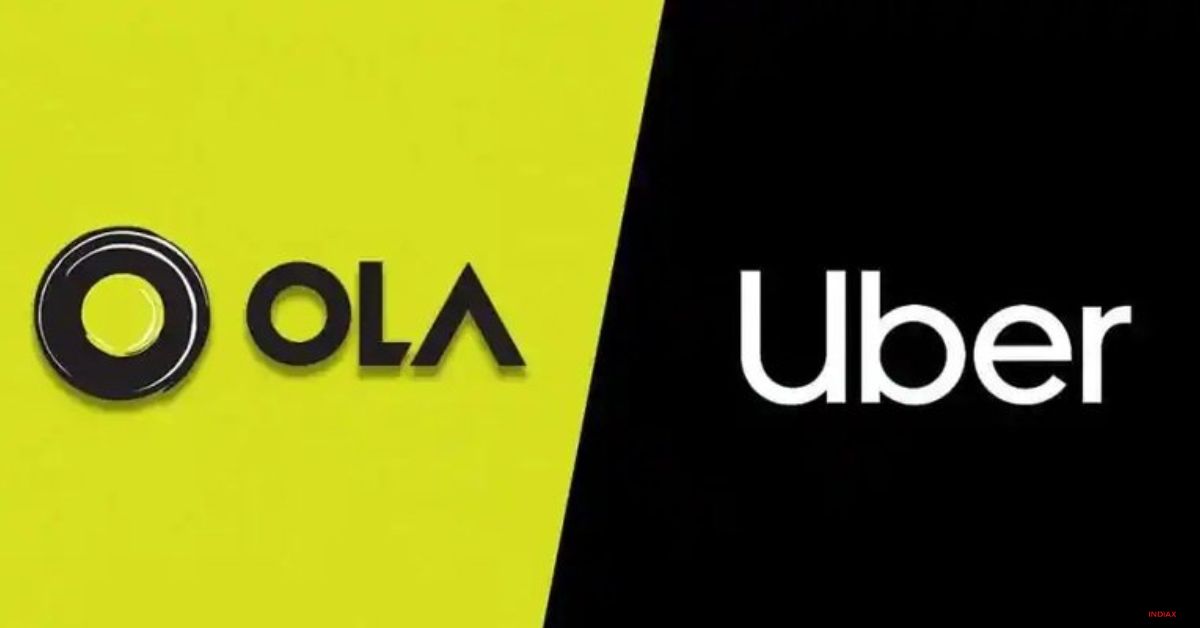“No Entry For Ola & Uber In Goa” is now official policy, as Chief Minister Pramod Sawant bans ride-hailing giants to protect local taxi unions. This controversial move sparked by political pressure and fears of external competition prioritizes traditional operators over tourist convenience and tech innovation. Goa’s transport deadlock reveals deep tensions between local livelihoods and modern mobility solutions, with implications for India’s gig economy. At Startup INDIAX, we unpack the four explosive truths behind this decision and its ripple effects on tourism, startups, and regulatory fairness.
1. The Political Bombshell: How Coastal MLAs Forced Pramod Sawant’s Hand
Picture this: Coastal legislators storming into CM Sawant’s office, backed by taxi union leaders demanding protection. This isn’t fiction—it’s what triggered Goa’s Ola-Uber ban. On June 14, 2025, Sawant abruptly reversed draft aggregator guidelines after BJP MLAs Michael Lobo (Calangute) and Jit Arolkar (Mandrem) led a pressure campaign. Their ultimatum? “Keep guidelines in abeyance or face unrest” .
Lobo’s argument was unequivocal: “The taxi business must remain with locals only” 1. His coastal belt constituency thrives on tourism, where taxi operations are often family-run. With 80+ lakh tourists visiting annually, these operators wield massive political clout. Sawant’s surrender wasn’t policy—it was political survival.
Key Insight: Goa’s government prioritized short-term peace with unions over long-term mobility reform.
2. Local Monopoly Shielded: Why Goa’s Taxi Unions Resisted Disruption
Goa’s taxi ecosystem isn’t just an industry it’s a fortress. For decades, unions have controlled fares, routes, and access. Unlike metros, taxis here operate without meters, charging fixed (often inflated) rates. A 10-km ride can cost ₹500+, with no bargaining power for tourists.
The unions’ fear? Ola/Uber would shatter their monopoly through:
- Transparent pricing: Algorithmic fares vs. arbitrary quotes
- Accountability: Digital tracking vs. cash-only, no-receipt transactions
- Competition: Driver influx from neighboring states
Despite two local apps Goa Miles and Goa Taxi users report glitches, driver shortages, and inconsistent pricing. Sawant touts them as “homegrown solutions,” but they lack the tech stack and scale of national players.
Table: Goa’s Taxi Ecosystem vs. App-Aggregator Model
| Factor | Local Taxis | Ola/Uber Model |
|---|---|---|
| Pricing | Union-set fares, no meters | Dynamic but transparent algorithm |
| Payment | Cash-only, no receipts | Digital/Cash, ride records |
| Coverage | Tourist zones only | State-wide network |
| Driver Onboarding | Restricted to locals | Open eligibility |
3. Tourism Under Threat: The Looming Mobility Crisis for Visitors
Imagine landing in Goa at midnight. No buses. No autos. Just taxi touts demanding ₹1,000 for a 5-km ride. This is the tourist reality Sawant’s policy perpetuates. With Ola/Uber banned, visitors face:
- Exploitative fares: 3-4x surge pricing during monsoons or festivals
- Safety gaps: No trip tracking or emergency protocols
- Accessibility issues: Elderly/disabled travelers stranded without app-based booking
Travel forums overflow with complaints. One family’s vacation involved ₹18,000 in taxi fares over four days—equal to their flight costs. While self-drive rentals exist, they don’t solve last-mile needs or drinking-tourist safety.
Startup INDIAX Perspective: Tourism contributes 30%+ to Goa’s GDP. This move risks its reputation as India’s “easygoing paradise.”
4. Regulatory Whiplash: Draft Guidelines vs. Policy Reality
Here’s the irony: Goa almost embraced modernity. In May 2025, the transport department released the Goa Transport Aggregator Guidelines, 2025—a framework licensing app-based operators with rules on:
- Licensing fees (₹5 lakh for state-wide permits)
- Fare ceilings (dynamic but capped)
- Driver welfare (contracts, dispute resolution)
But within weeks, Sawant contradicted his own policy, declaring: “Ola and Uber will not come here. These are only guidelines”. The U-turn exposes a critical flaw: regulation without enforcement.
Other states like Karnataka and Kerala integrated aggregators with local unions. Goa chose outright rejection, ignoring compromises like:
- Geofencing: Restricting Ola/Uber to airport/tourist zones
- Revenue sharing: Direct commissions to union funds
- Hybrid onboarding: Local drivers on national apps
5. Beyond Goa: Could Other States Copy This Protectionist Model?
Sawant’s decision sets a dangerous precedent. Kerala, Himachal, and Maharashtra face similar union-aggregator clashes. Goa’s “local-first” rhetoric could inspire copycat bans, fragmenting India’s mobility market.
Consider the ripple effects:
- Startup chill: Investors may avoid transport-tech in union-dominated states
- Consumer suffering: Tourists pay “Goa premiums” elsewhere
- Job losses: Drivers lose gig opportunities; unions block new hiring
Already, Karnataka banned bike taxis after union lobbying, while Chennai drivers boycotted Ola/Uber over commissions.
6. The Road Ahead: Viable Solutions or Perpetual Gridlock?
Is Goa’s mobility crisis fixable? Yes—but requires political courage:
- Mandatory metering: State-subsidized GPS meters for all taxis
- Unified app: Merge Goa Miles/Taxi into one state-run platform with Ola’s tech
- Tourist vouchers: Pre-paid taxi cards at hotels/airports to cap fares
- Staggered entry: Allow aggregators only in off-beat areas first
Without action, Goa risks tourism erosion. As one traveler tweeted: “Goa’s beauty is unmatched. Its taxi system? A nightmare.”
Startup INDIAX Verdict: Protectionism can’t override progress. Sustainable reform needs unions at the table—not barricading it.

